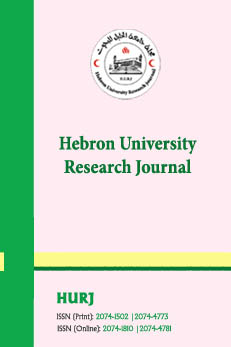News Archive
Conference on Criminal Law in Palestine
Conference on
Criminal Law in Palestine
Hebron, Palestine, 20-21 April 2011
Recommendations
The Department of Law and Jurisprudence of Hebron University organized a conference on criminal law in Palestine from 20 - 21 April 2011. Fifteen papers of researches from various universities were discussed at the conference. Over 250 participants, representing government institutions, parliamentarians, professors, judges, lawyers, United Nations agencies, international and local non-governmental organizations, and law students took part in the conference. The researchers compared Palestinian law, International law, Islamic law and Tribal law.
The conference adopted the following recommendations:
- Urging researches and university professors to conduct in-depth research on the applicable law in Palestine, using comparative and objective approaches.
- Strengthening the relationship amongst universities, official bodies, NGOs and international organizations regarding criminal justice.
- Raising public awareness concerning the individuality of the crime to preserve the rule of law in Palestine and to minimize cases of revenge.
- Encouraging tribal judges to observe the principles of justice values of the religion in their conciliation efforts and to avoid unfair customs.
- Calling upon the drafting committee of the new Palestinian penal law to adhere to international human rights standards and to the religious and justice values. In particular, if death penalty is to continue, reduce this penalty to the minimum extent; criminalize torture with specific penalties in line with the International Convention against Torture; and eliminate the so called "honor crimes".
- Appealing to all authorizes exercise effective control in the Palestinian territory to respect the right of peaceful assembly, freedom of expression and association, and cease all forms of administrative and political detention.
- Limiting the jurisdiction of military courts to the security personnel and refrain from prosecuting civilians before these courts.
- Demanding the United Nations, specifically human rights thematic Special Rapporteurs and the Office of the High Commissioner for Human Rights as well as relevant United Nations agencies, to further support the Palestinians in developing modern criminal justice system according to international standards and to closely monitor violations of international law on the ground.
- Requesting the International Criminal Court to accept the request of the Palestinian National Authority and declare its jurisdiction over all war crimes and crimes against humanity that occurred, or might occur, in the Palestinian territory and to prosecute all those accused of committing such crimes.
10. Asking the Palestinian National Authority to rapidly reform the juvenile justice system in the country, adopt a modern law on children in conflict with the law, establish specialized child judiciary, prosecution and police, formulate mechanisms relating to the alternatives to imprisonment, and open new juvenile rehabilitation institutions and strengthen the role of probation officers.





